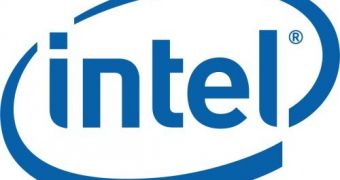According to recent reports on the Internet, the leading processors maker, Santa Clara, California-based Intel, is expected to unveil no less than 13 new CPUs, part of the company's Xeon family of processors. The new Xeon 5500 and Xeon 3500 series of server processing units are slated for a Q1 2009 release, according to sources cited by Digitimes. Coincidently or not, the news comes on the same day that AMD announced it had begun shipping its new 45nm Opteron CPUs, codenamed Shanghai.
Both series of Xeon processors, to be launched by Intel next year, have been built on the company's new microarchitecture, codenamed Nehalem. These server chips are designed to provide high levels of performance in both quad-core and dual-core variants. The 5500 Nehalem-EP series is going to include 10 new processor models, while the 3500 series Nehalem-WS server CPU will be offered only in three different models.
Intel plans to release 9 quad-core Xeon processors, part of the 5500, and just one dual-core model. The quad-core models include the W5580 (3.2GHz), X5570 (2.93GHz), X5560 (2.8GHz), X5550 (2.66GHz), E5540 (2.53GHz), E5530 (2.4GHz), E5520 (2.26GHz), E5506 (2.13GHz), and E5504 (2GHz). The dual-core model will go out under the dubbing E5502. As far as pricing is concerned, these server processors will cost between US$188 and US$1,600, in thousand-unit tray quantities.
With the Xeon 3500 series, Intel will only provide three new quad-core CPUs, the W3570, W3540 and W3520, which will be priced at US$999, US$562 and US$284, respectively.
In addition to the launch of the company's new server-oriented Xeon processors, Intel is also said to be planning to phase out seven of its notebook CPUs, including the Core 2 Extreme X7900 and X7800, as well as the Core 2 Duo T7800 and L7700, all of which will be discontinued starting January next year. These notebook processors could leave place for the upcoming Nehalem-based Capella platform, which will deliver more performance to next-generation notebooks.

 14 DAY TRIAL //
14 DAY TRIAL //